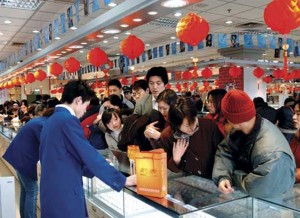An article from canadianbusiness.com is about the possible tradeoffs between the installation of the Keystone pipeline. One side argues that this massive projects create many jobs and the other side argues that it possibly an environmental risk. This article debates the issue of a tradeoff between an ethical issue versus an economic issue. The installation of this pipeline would cause a risk in destroying the fragile environment in which the pipe was proposed to be built. However I personally think that the American economy would benefit in the short term from the construction of this pipeline. Currently the US economy is in recession and the unemployment rate is high. With the construction of this pipeline, not only will it create jobs, but it would increase Americas GDP output which is benefitial for the economy. However in the long term, we would have to realise that the problem of the impact on the environment might come back to plague Americas problems. The US might have to spend additional money to rectify any environmental concerns which might not be cheap. Unfortunately, the US economy is in a critical state right now and it needs to employ effective measures to improve the ailing economy.
Source: (http://www.canadianbusiness.com/article/49503–environmentalists-pack-hearing-call-keystone-pipeline-bad-deal-for-u-s–page2)


